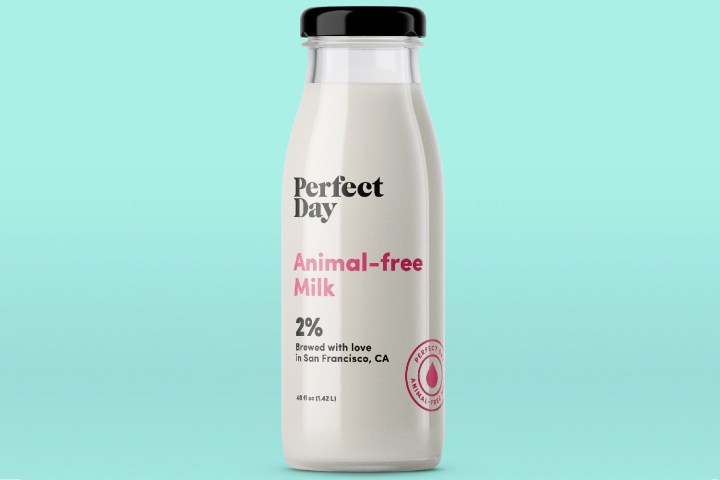
That’s the mission statement of a startup called Perfect Day Foods, founded by two twenty-something biomedical scientists. The firm has so far raised $4 million from investors. Perfect Day’s plan? To create a lactose-free milk substitute that’s a whole lot closer to the real thing than existing milk substitutes.
“Just before we started this company, my co-founder Perumal Gandhi and I had recently adopted a plant-based diet and were finding it hard to live without some of our favorite foods: namely, ooey, gooey, cheesy pizza,” co-founder and CEO Ryan Pandya told Digital Trends.
He continued that the pair knew of people who were using food technology to create meat without animals, and wondered why nobody was doing the same for milk.
“Our goal isn’t to be an alternative, it’s to be delicious,” he continued. “So whether it’s a Perfect Day yogurt, cheese, butter, or ice cream, it will taste as good as the real thing and be better for you. We want to empower people to enjoy the foods they love, while making the world a greener, kinder place. We don’t think you should have to sacrifice one of the other.”
As Pandya explained, Perfect Day uses yeast fermentation to make its milk, utilizing 3D-printed cow’s DNA as part of the process.
“It’s a process akin to craft brewing and … allows us to create real milk proteins that are identical to the ones found in cow’s milk, without a single cow,” he said. “First, we start with a yeast that’s safe and well understood, which we sourced from the USDA. We give this standard yeast a ‘blueprint’ from 3-D printed cow DNA that allows it to ferment sugar and create real milk proteins. We then carefully separate these milk proteins and combine them with plant-based sugar, plant-based fats, and nutrients to produce a product that has the identical taste and texture of cow’s milk, but packs in more nutrition with no food safety or contamination concerns.”
The cream on this already impressive high-tech milkshake? It boasts a significantly longer shelf life than regular cow’s milk.
As to when customers will be able to get their hands on Perfect Day’s vegan, lactose-free, more sustainable milk substitute, Pandya told Digital Trends it won’t be too long. “We’re focused on product formulation and commercialization as we look to bring our products to market by the end of next year,” he said.


